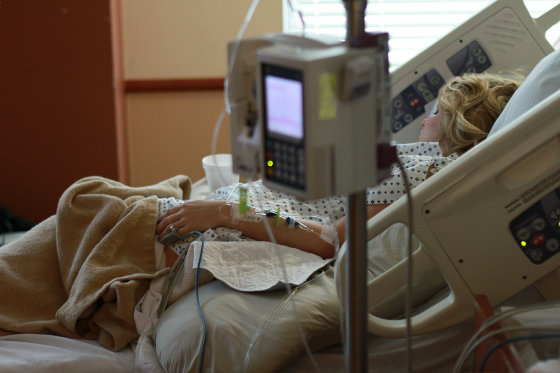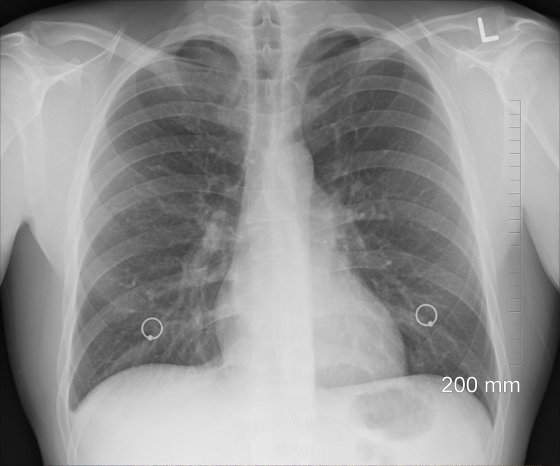Why does new coronavirus infection become severe in only some people?

A new type of coronavirus infection (COVID-19) is a mysterious disease in which elderly people and people with chronic illness are prone to severe illness and death in some cases, but mostly asymptomatic patients and mild patients. Although all treatments and vaccines are still in the research stage, doctor James Hamblin spells out 'why only some people get sick' that can be considered from the research reports so far.
Why COVID-19 Makes Some People Sicker Than Others-The Atlantic
The new coronavirus (SARS-CoV-2) is often asymptomatic even after infection, and some people have symptoms such as fever, cough, pain and malaise, but they recover after a while. However, some people will come to a “dramatic turning point” and experience shortness of breath and palpitations (organism), organ failure, and even if they lose their lives, they will spend their time at the ICU. The change is 'like falling off a cliff, and we can't predict who will happen,' said Stephen Thomas of Upstate University Hospital.
COVID-19's variability in symptoms is 'extremely rare,' while some people who were relatively mild said 'it was like a flu that lasted for two weeks.'
Robert Murphy of the Northwestern Center for World Infectious Diseases explained that the cause of the variation in symptoms is not the virus itself but the reaction of the human body. A research report indicates that many deaths due to new coronavirus infections are elderly and people with chronic illness, but COVID-19 treatment `` why do some people feel nothing and others do not? '' It is necessary to understand the big picture.
One of the symptoms reported by COVID-19 patients is 'loss of taste and smell'. The taste may change even with a common cold, but in the case of COVID-19, it completely disappears to the extent that it is said that 'even if you eat pizza, you feel like you're chewing cardboard.' The reason for this is not yet clear, but it is possible that the inflammatory reaction due to infection temporarily changes the nerves of the taste and olfactory senses, or more possibly, the virus is attacking the nerve itself. It will be done. When the virus attacks the nerves, it leaves long-term damage and can affect other nervous systems. It has already been reported that SARS-CoV-2 causes inflammation and permanent damage to the brain.

There are no reports of SARS-CoV-2 invading the brain and spine directly, but the
In the case of COVID-19, there are cases where fever and body pain lasted for about 2 weeks, then suddenly fell and was taken to the hospital, where the blood oxygen level dropped to 79%. It is generally said that the blood oxygen level is 96 to 99%, and the number 79% is a number that requires a ventilator. It is thought that such a sharp decrease is due to the overdrive of the immune response. According to the Colombian Presbyterian Medical Center, half of the patients who entered the intensive care unit for COVID-19 need to be hospitalized for about 20 days, and many will be carried with blood tests showing high inflammation levels. thing. Especially, it is considered that the amount of blood protein called D-dimer predicts the mortality rate of patients, and that the value of D-dimer will be an early and useful marker as a deciding factor of whether the symptoms become serious. The survey results are also reported.

These biological markers are often one of the signs of fatal immune response and
In front of a patient with this condition, doctors take steps to keep the person's immune system fighting the virus, while suppressing the responsive response so that the person does not die or cause damage to organs. However, blocking the body's fight against viruses that try to kill cells is dangerous, and the balance between 'not spreading the infection' and 'suppressing the cytokine storm' is important.
This cytokine storm is not a COVID-19-specific symptom and can occur in dengue fever, Ebola, influenza and other coronavirus infections, and can treat difficult things. Various clinical trials are currently underway to treat an advanced form of the cytokine storm, and it is believed that tamsulosin hydrochloride will help alleviate symptoms. Although there is a high risk of people with celiac disease and inflammatory bowel disease becoming more severe, there are research reports that drug therapy that inhibits a cytokine called interleukin-6 can reduce excessive immune responses.

In addition, considering price and distribution aspects, it is considered that corticosteroids that function as an emergency brake for the immune system are used, but using steroids increases the risk of other infectious diseases. There are side effects.
On the other hand, cytokines like interleukin-6 can be elevated with sleep deprivation overnight. Considering the possibility of accumulating daily stress, those who are unable to take work when sick, who do not have a comfortable and quiet home, who do not have access to healthy diet and clean air are at increased risk of seriousness. As a consequence, disparities and inequalities can have a significant impact.
Related Posts:
in Science, Posted by darkhorse_log







